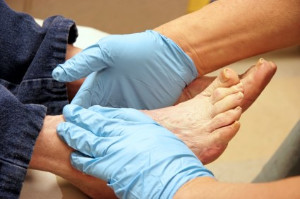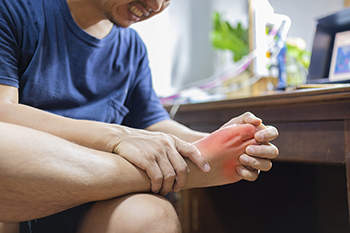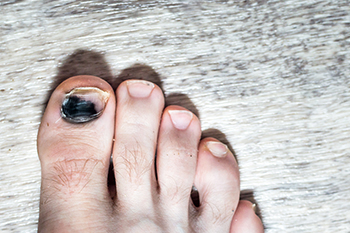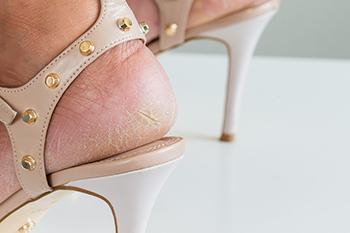
(908) 381-8160Berkeley Heights

Engaging in the exhilarating sport of football comes with its share of risks, and one of the most prevalent concerns is the susceptibility to ankle injuries. The dynamic nature of the game, involving sudden stops, sharp turns, and high-impact collisions, puts players at an increased risk of sprains and strains. Ankle sprains, resulting from the ligaments being stretched beyond their limits, are a common injury, causing pain, swelling, and instability. Fractures also may occur during forceful tackles or awkward landings, demanding immediate attention for proper healing. Achilles tendon injuries, though less frequent, can sideline players with intense pain along the back of the ankle. Preventive measures, such as proper warm-ups, strengthening exercises, and wearing supportive footwear, are critical in decreasing the risk of ankle injuries. Football enthusiasts must prioritize their ankle health, and it is suggested that you consult a podiatrist who can guide you to developing and maintaining strong feet and ankles.
Sports related foot and ankle injuries require proper treatment before players can go back to their regular routines. For more information, contact Dr. Janet Leicht of New Jersey. Our doctor can provide the care you need to keep you pain-free and on your feet.
Sports Related Foot and Ankle Injuries
Foot and ankle injuries are a common occurrence when it comes to athletes of any sport. While many athletes dismiss the initial aches and pains, the truth is that ignoring potential foot and ankle injuries can lead to serious problems. As athletes continue to place pressure and strain the area further, a mild injury can turn into something as serious as a rupture and may lead to a permanent disability. There are many factors that contribute to sports related foot and ankle injuries, which include failure to warm up properly, not providing support or wearing bad footwear. Common injuries and conditions athletes face, including:
Sports related injuries are commonly treated using the RICE method. This includes rest, applying ice to the injured area, compression and elevating the ankle. More serious sprains and injuries may require surgery, which could include arthroscopic and reconstructive surgery. Rehabilitation and therapy may also be required in order to get any recovering athlete to become fully functional again. Any unusual aches and pains an athlete sustains must be evaluated by a licensed, reputable medical professional.
If you have any questions please feel free to contact our office located in Berkeley Heights, NJ . We offer the newest diagnostic and treatment technologies for all your foot and ankle needs.

Diabetes, a metabolic disorder, can leave its imprint on the feet, serving as an important indicator of the condition. One prominent symptom is neuropathy, a tingling or numbness stemming from nerve damage. This often occurs in the feet, creating a heightened risk of injuries due to diminished sensation. Reduced blood circulation, another hallmark of diabetes, can lead to slow healing of wounds and ulcers on the feet, increasing vulnerability to infections. Changes in skin texture, such as dryness or peeling, may occur, reflecting the impact of fluctuating blood sugar levels. Regular foot examinations, along with meticulous care, become essential for individuals with diabetes to prevent complications. Acknowledging these subtle signs in the feet not only aids in the early detection of diabetes but also prompts timely intervention. If you have diabetes, it is strongly suggested that you are under the care of a podiatrist who can offer effective management strategies.
Diabetic foot care is important in preventing foot ailments such as ulcers. If you are suffering from diabetes or have any other concerns about your feet, contact Dr. Janet Leicht from New Jersey. Our doctor can provide the care you need to keep you pain-free and on your feet.
Diabetic Foot Care
Diabetes affects millions of people every year. The condition can damage blood vessels in many parts of the body, especially the feet. Because of this, taking care of your feet is essential if you have diabetes, and having a podiatrist help monitor your foot health is highly recommended.
The Importance of Caring for Your Feet
Patients with diabetes should have their doctor monitor their blood levels, as blood sugar levels play such a huge role in diabetic care. Monitoring these levels on a regular basis is highly advised.
It is always best to inform your healthcare professional of any concerns you may have regarding your feet, especially for diabetic patients. Early treatment and routine foot examinations are keys to maintaining proper health, especially because severe complications can arise if proper treatment is not applied.
If you have any questions please feel free to contact our office located in Berkeley Heights, NJ . We offer the newest diagnostic and treatment technologies for all your foot and ankle needs.

There are many types of arthritis, with rheumatoid arthritis, or RA, and gout being two distinct but often confused members of this family. While both inflict pain and inflammation upon the joints, the origins and treatment strategies for each differ significantly. Rheumatoid arthritis is an autoimmune inflammatory condition that arises when the immune system mistakenly targets healthy cells in the synovial tissues. This results in pain, swelling, and inflammation. RA can affect ankle joints on both sides of the body and can lead to irreversible joint damage over time. Gout, while also inflammatory, is not autoimmune in nature. It develops from elevated levels of uric acid in the bloodstream. Uric acid, found in certain foods and drinks, as well as influenced by specific medications, forms crystals that deposit in synovial tissues, particularly in the feet, and especially in the big toe. Unfortunately, studies show that some patients with RA also have gout. Obesity is thought to be a link between the two conditions in some cases, as it is a shared risk factor. An accurate diagnosis is paramount for effective treatment. A podiatrist can conduct a series of tests to determine whether your joint pain comes from RA, gout, or both. For help, it is suggested that you schedule an appointment with a podiatrist.
Arthritis can be a difficult condition to live with. If you are seeking treatment, contact Dr. Janet Leicht from New Jersey. Our doctor can provide the care you need to keep you pain-free and on your feet.
Arthritic Foot Care
Arthritis is a joint disorder that involves the inflammation of different joints in your body, such as those in your feet. Arthritis is often caused by a degenerative joint disease and causes mild to severe pain in all affected areas. In addition to this, swelling and stiffness in the affected joints can also be a common symptom of arthritis.
In many cases, wearing ill-fitting shoes can worsen the effects and pain of arthritis. Wearing shoes that have a lower heel and extra room can help your feet feel more comfortable. In cases of rheumatoid arthritis, the arch in your foot may become problematic. Buying shoes with proper arch support that contour to your feet can help immensely.
Alleviating Arthritic Pain
It is best to see your doctor for the treatment that is right for your needs and symptoms. Conditions vary, and a podiatrist can help you determine the right method of care for your feet.
If you have any questions, please feel free to contact our office located in Berkeley Heights, NJ . We offer the newest diagnostic tools and technology to treat your foot and ankle needs.

Toe pain is a common discomfort that can significantly impact your daily life. One of the leading causes is wearing shoes that are too tight or too loose, which can exert pressure on the toes, leading to pain and discomfort. Additionally, injuries such as stubbing or dropping heavy objects on the toes can result in acute pain. Ingrown toenails, a condition where the nail grows into the surrounding skin, are another common culprit. Arthritis, characterized by inflammation of the joints, can affect the toes and cause persistent pain. Toe pain may also be indicative of conditions like gout or bunions, where joint inflammation and deformities contribute to discomfort. Understanding these common causes empowers individuals to make informed choices about their footwear, lifestyle, and seek timely medical attention from a podiatrist to alleviate toe pain and enhance overall foot health. If you are experiencing toe pain, it is suggested that you visit this type of doctor who can determine the cause and offer appropriate treatment options.
Toe pain can disrupt your daily activities. If you have any concerns, contact Dr. Janet Leicht of New Jersey. Our doctor can provide the care you need to keep you pain-free and on your feet.
What Causes Toe Pain?
Most severe toe pain is caused due to a sports injury, trauma from dropping something heavy on the toe, or bumping into something rigid. Other problems can develop over time for various reasons.
Toe pain can be caused by one or more ailments. The most common include:
When to See a Podiatrist
Diagnosis
In many cases the cause of toe pain is obvious, but in others, a podiatrist may want to use more advanced methods to determine the problem. These can range from simple visual inspections and sensation tests to X-rays and MRI scans. Prior medical history, family medical history, and any recent physical traumatic events will all be taken into consideration for a proper diagnosis.
Treatment
Treatments for toe pain and injuries vary and may include shoe inserts, padding, taping, medicines, injections, and in some cases, surgery. If you believe that you have broken a toe, please see a podiatrist as soon as possible.
If you have any questions please feel free to contact our office located in Berkeley Heights, NJ . We offer the newest diagnostic tools and technology to treat your foot and ankle needs.

Cracked heels, a common and often painful foot ailment, may be more than a superficial concern. It could be a subtle indicator of underlying nutritional deficiencies. Essential vitamins like A, C, and E, along with minerals such as zinc, contribute significantly to skin health. Insufficient intake of these vital nutrients can compromise the skin's elasticity and integrity, leading to dryness and fissures, particularly on the heels. Vitamin A plays a vital role in skin regeneration, while vitamin C supports collagen synthesis, essential for maintaining skin suppleness. Vitamin E functions as an antioxidant, protecting skin cells from damage. Zinc aids in wound healing, essential for repairing cracks in the skin. Understanding the correlation between vitamin deficiencies and cracked heels highlights the importance of a well-balanced diet and, when necessary, nutritional supplements. If you have cracked heels, it is suggested that you confer with a podiatrist who address the problem and offer treatment options.
Cracked heels are unsightly and can cause further damage to your shoes and feet. If you have any concerns, contact Dr. Janet Leicht from New Jersey. Our doctor can provide the care you need to keep you pain-free and on your feet.
Cracked Heels
Cracked heels appear unappealing and can make it harder for you walk around in sandals. Aside from looking unpleasant, cracked heels can also tear stockings, socks, and wear out your shoes. There are several methods to help restore a cracked heel and prevent further damage.
How Do You Get Them?
Dry skin is the number one culprit in creating cracked heels. Many athletes, walkers, joggers, and even swimmers suffer from cracked heels. Age and skin oil production play a role to getting cracked heels as well.
Promote Healing
Over the counter medicines can help, especially for those that need instant relief or who suffer from chronic dry feet.
Wear Socks – Wearing socks with medicated creams helps lock in moisture.
Moisturizers – Applying both day and night will help alleviate dryness which causes cracking.
Pumice Stones – These exfoliate and remove dead skin, which allows for smoother moisturizer application and better absorption into the skin.
Change in Diet
Eating healthy with a well-balanced diet will give the skin a fresh and radiant look. Your body responds to the kinds of food you ingest. Omega-3 fatty acids and zinc supplements can also revitalize skin tissue.
Most importantly, seek professional help if unsure how to proceed in treating cracked heels. A podiatrist will help you with any questions or information needed.
If you have any questions, please feel free to contact our office located in Berkeley Heights, NJ . We offer the newest diagnostic and treatment technologies for all your foot care needs.